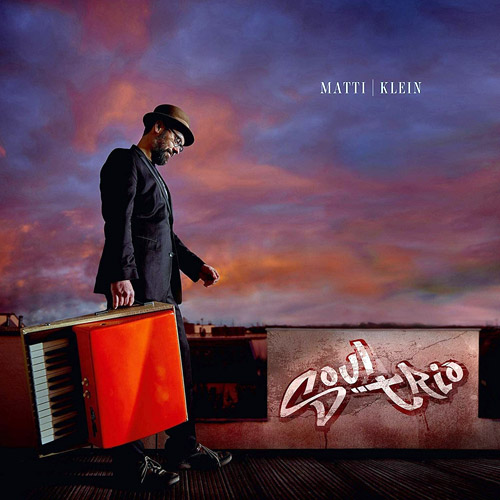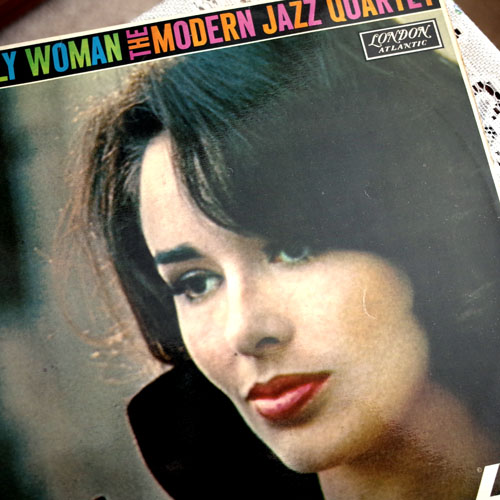Matti Klein Soul Trio LP
Matti Klein SOUL TRIO. Shuffle Shack
“In this trio I can live out my love of instrumental groove jazz as well as create an exciting format for my compositions, with the Wurlitzer as the main instrument, creating a new basic sound. Instead of a classic line-up with bass, the three of us, with the Rhodes Bass in my left hand, can play pretty fat grooves. The soul in the band name is also very important to me, as an emphasis that this is an absolute affair of the heart.” - Matti Klein
As musical director for the Brazilianm soul superstar Ed Motta and - armed with his various vintage keyboards - via his previous band Mo’Blow, Berlin-based Matti klein has gained a reputation as one of the most interesting groove jazz musicians on the German scene, appearing in renowned clubs like Ronnie Scott’s in London, the Blue Note in Tokyo and the Highline Ballroom in New York, as well as international festivals such as Pori Jazz, Jazz in Marciac and the Leverkusener Jazztage. He has also shared stages and studio time with stars such as Nils Landgren, Jimmy Sommerville and David T. Walker.
The trio’s debut album, recorded, mixed and co-produced by Axel Reinemer (of Jazzanova) in the Jazzanova Recording Studio, spans a wide stylistic arc and encompasses Klein’s musical evolution. From the Soul Jazz groove ‘Kill It With A Pill’, which picks up where he left off with Mo’Blow, the crooked but not bent ‘Fairly Odd Stories, the ‘African Taxitrip’ (which pays tribute to Dollar Brand and to Matti Klein’s history with the Afrobeat band Kabu Kabu), the dreamy downtempo hip-hop of ‘Windy Move’ (which dates back to a meeting with the producer Samon Kawamura) the “unlucky love song” ‘Tastes Like Chocolate, Strawberry’, right through to the eight and a half munute suite ‘River Journey’ (the travelogue of a canoe trip on the Jongunjoki river in Eastern Finalnd), the restless fireworks are audible throughout, rising from the depths of the soul to Hallelujah heights.
Matti Klein - Wurlitzer, Rhodes Bass
Lars Zander - Bass Clarinet, Sax
Andre Seidel - Drums
Review
Serious lovers of music spread their wings over many genres. For them, and me, it’s the music that counts; the evident skill of the musicians, the quality of the song-writing and production; and its ability to communicate to and connect with the listener. My earliest aquaintence with jazz was back in 1978 when I moved to Australia for work in its most metropolitan centre, Sydney. The company I worked for had a retail outlet beneath the head offices where I was based. One day I happened to visit the store and came across a cut-price sale of vinyl LP records. I acquired two including The Modern Jazz Quartet’s LONELY WOMAN mono recording originally released in 1962 on the London Atlantic label. I couldn’t stop playing my first ever jazz record. The LP’s sleevenotes start with:
“Symbols can be dangerous. The powers of seduction they possess make you by-pass, at times, the profound meaning of the ideas they represent. Had we forgotten, for instance, that the MJQ is not merely a quartet playing modern jazz, this LP would remind us at once that it is also, and in spite of its small personnel, an orchestra in the most complete meaning of the word. For the MJQ, this record is a milestone.”
This moving and beautiful record started my journey into modern jazz. In my view Matti Klein, whilst not necessarily creating a MJQ masterpiece, has presented to us a record that will please jazz fans but, more importantly, tempt others to dip their toes into these fascinating musical waters.
Opener ‘Kill It With A Pill’ provides a startling, bright, clear and rhythmic introduction. Behind the strong melody and soul jazz groove, Zander’s sax and Seidel’s drums dominate while the whole is punctuated tellingly by Klein’s Wurlitzer. The quality of production and therefore sound is stunning. Hell, I’m liking this, and boy does it rock! Next comes ‘Fairly Odd Stories’ led by Klein’s keyboard offers a slower, more contemplative tempo with the brush of snares in the background. Klein seems to be sensitive to the importance of melody and its also here in droves. It’s another beauty.
‘Seraya Blues’ opens with military style drum moments before Klein enters challenging the scales of his Wurlitzer. It’s unusual for me to like a record on its first hearing but this one has to be one of those rare exceptions. In Seidel the trio have a very special drummer as his improv moments here testify to. ‘African Taxtitrip’ has a powerful narrative vibe with Zander’s sax playing a key role while a relentless drum roll shades it in the background. There’s a hint of threat here and deft changes of pace and vibe as the song’s jouney continues.
‘Windy Move’ is a slow-moving ballad that winds along like a mountain stream. ‘Take Heart Catch Life’ enters the world of dream-time as opening twinkling keyboard sounds eventually meet awakening drums and keyboards, while the sound is kept firmly under control. It’s an emotional journey of great beauty. Moving on a few tracks to the 8-minute plus ‘River Journey’, which reads like a very descriptive book starting in almost ecclesiastical style, as the journey starts. Close your eyes and you’re travelling the natural river wonder catching sight of river bank scenes and the trails left by other river vessels. The song paints the most acute and wondrous picture with the soundscape changing in pace and flavour as it progresses.
‘Tastes Like Chocolate, Strawberry’ is another long track featuring keyboards on a glacially-paced route. Then the magic of Zander’s clarinet arrives to take you to your next destination. Once again there’s a tangible melody at the song’s heart. ‘Home Is Where The Beat Is’ is firmly down the soul route with a sound that reminds me of Isaac hayes at his Shaft soundtrack best. I’ll say it again, if you’ve shied away from jazz suck this one and see. I think you might start a jazz love affair, like I did many moons ago.
4.5/5
Page: 1 2
|
|

|

Midlake |
LATEST GALLERY IMAGES

Good Neighbours 
St Vincent 2025 |
|
|








